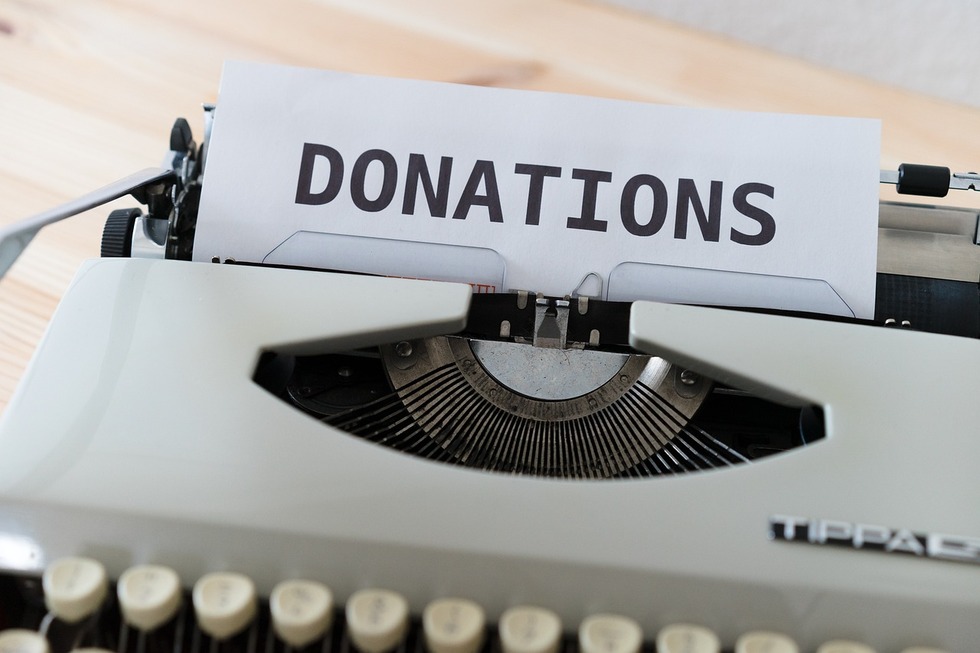Form 8283: How to claim a tax deduction for noncash charitable contributions

Donating property to charity can be a great way to support a cause while also benefiting from a tax deduction. However, the IRS closely monitors noncash donations to prevent inflated valuations and improper deductions.
If you’ve donated real estate, artwork, vehicles, stocks, or other noncash assets worth over $500, you’ll need to report it using Form 8283.
This guide explains how to correctly complete Form 8283, avoid common mistakes, and ensure compliance with IRS rules.
What is Form 8283?
IRS Form 8283, Noncash Charitable Contributions, is required when an individual, partnership, or corporation donates property valued at more than $500 in a single tax year.
This form ensures that taxpayers properly document their donations and claim deductions accurately.
Who needs to file Form 8283?
- Individuals filing Form 1040
- Partnerships and corporations filing Form 1120
- Taxpayers donating real estate, vehicles, artwork, stocks, collectibles, cryptocurrency, or any other property
Even if you’re donating to a qualified 501(c)(3) organization, the IRS requires proper documentation to prevent abusive tax deductions.
Why does the IRS require this form?
Noncash donations are frequently overvalued, leading to improper tax deductions. To combat fraud and misreporting, the IRS enforces strict documentation rules.
If you claim a large deduction, particularly for art, conservation easements, or real estate, expect closer IRS scrutiny.
Incorrectly reporting noncash contributions can lead to penalties, audits, or loss of the deduction entirely.
Free call with our team
Join 50,000+ happy taxpayers
How to fill out Form 8283: Step-by-step guide
Step 1: Determine which section to use
Form 8283 is divided into two sections based on the total value of the donation:
| Donation value | Section to complete | Additional requirements |
|---|---|---|
| $501 - $5,000 | Section A | No appraisal required, but detailed description needed |
| Over $5,000 | Section B | Requires a qualified appraisal and the charity’s signature (Part IV) |
NOTE! Publicly traded securities do not require an appraisal but must still be reported on the form.
Step 2: Fill out Section A (for donations $501 - $5,000)
If your noncash donation falls within this range, you must provide:
- A detailed description of the donated property
- The date of contribution
- How you acquired the item (e.g., purchase, inheritance, gift)
- The original cost and fair market value at the time of donation
- The method used to determine value (e.g., comparable sales, appraisal, IRS valuation guides)
Pro tip: No appraisal is needed, but your documentation should justify the value claimed.
Step 3: Complete section B (for donations over $5,000)
If you’re donating high-value property such as real estate, artwork, vehicles, or collectibles, you must:
- Obtain a qualified appraisal from an independent appraiser
- Have the charity sign Part IV, confirming receipt of the donation
- Attach the appraisal report to your tax return
Publicly traded securities (stocks, bonds) do not require an appraisal, but they must still be reported accurately.
For conservation easements, additional documentation is required, including specific valuation reports.
Form 8283 preview
How the IRS scrutinizes Form 8283
Some high-value donations trigger extra IRS scrutiny due to frequent misreporting.
Here’s a look at which donations raise red flags:
| Type of Donation | Common Issues | IRS Audit Risk |
|---|---|---|
| Artwork | Overstated value, lack of expert appraisal | High |
| Real estate | Conservation easements with inflated valuations | High |
| Vehicles | Deduction claimed above fair market value | Medium |
| Stocks & securities | Inconsistent valuation methods | Low |
Pro tip: For art valued over $20,000, the IRS may require an Art Advisory Panel review before allowing the deduction.
Art Advisory Panel preview
Common mistakes to avoid on Form 8283
- Overstating the donation value – The IRS requires fair market value, not what you "think" it's worth. Using a professional appraiser is the safest way to stay compliant.
- Forgetting the appraiser’s signature – Any donation requiring an appraisal must have the appraiser's signed certification. Missing this will invalidate your deduction.
- Failing to get charity confirmation – Donations exceeding $5,000 require the donee's signature in Part IV of Section B. The IRS may deny your deduction without this confirmation.
- Poor recordkeeping – The IRS may request proof of ownership, purchase records, and appraisal details during an audit. Keep detailed records for at least three years.
Filing Form 8283 with your tax return
Once completed, attach Form 8283 to your Form 1040 (individuals) or Form 1120 (corporations) and submit it with your tax return.
Additional documents you may need:
- Appraisal report (if required)
- Acknowledgment letter from the charity confirming receipt
- Photos, receipts, or valuation reports (for expensive items)
Pro tip: If filing electronically, certain documents may need to be mailed separately to the IRS. Always check the latest IRS e-filing guidelines.
Final thoughts: How to maximize your charitable deduction
To secure your tax deduction while avoiding IRS issues, follow these best practices:
- Use a qualified appraiser for high-value donations
- Keep thorough records, including receipts and valuation reports
- Ensure the charity signs required sections of Form 8283
- File your tax return on time with the correct supporting documents
If you’re unsure about the fair market value of your donation or whether you need an appraisal, consult a tax professional. Errors on Form 8283 can cost you thousands in lost deductions or penalties.
Taxes are complicated
Get peace of mind with TFX
FAQ
Yes, if the total value is under $5,000. Donations over this amount require a qualified appraisal unless they are publicly traded securities.
The IRS defines fair market value as the price a willing buyer would pay a willing seller under normal conditions. Overstating values can result in denied deductions or penalties.
If all noncash donations to the same charity exceed $5,000 in one year, you must complete Section B and get an appraisal.
Generally, no. Only donations to IRS-qualified U.S. charities are deductible.
Yes. If the vehicle’s value exceeds $500, you must also file Form 1098-C with Form 8283 to claim the deduction.
This guide is for info purposes, not legal advice.
Always consult a tax pro for your specific case.



